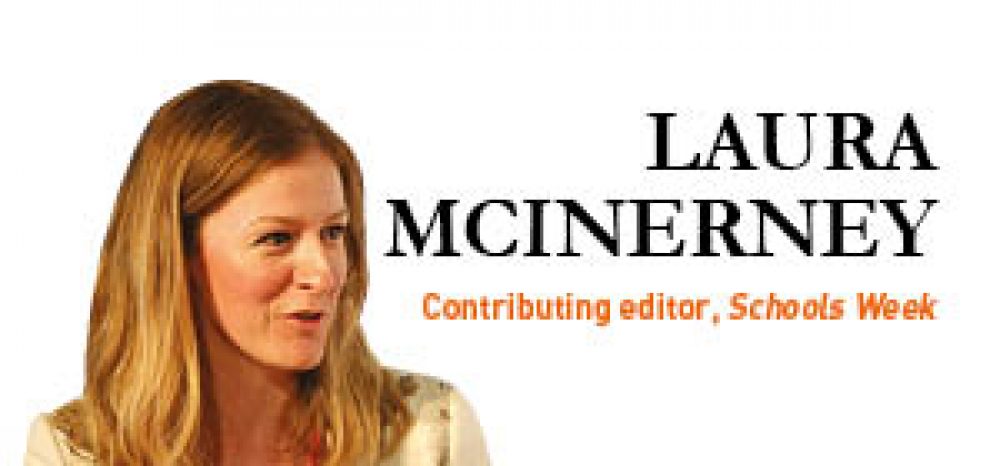Before I became a teacher I briefly worked for KPMG, one of the world’s largest auditors. It was shortly after the fall of Enron, itself one of the world’s largest accountancy firms, after its senior leaders were discovered up to their necks in fraud, money laundering, and conspiracy, among other things.
The fall of Enron caused KPMG to bring in hundreds of complex rules which led to a lot of paperwork (which, as a junior, I was involved in mindlessly filing). It piqued my interest in the scandal and, after reading about it, all I could think was “why would these people risk everything?”
That question arises each time I hear a headteacher or academy chief has gone rogue and racked up inappropriate expenses or employed their entire family in non-jobs.
Critics say that putting schools into academy trusts rather than leaving them under the watch of councils has made it easier for leaders to push moral boundaries. But this doesn’t make sense. The annually published PDFs of academy accounts are much easier to read than councils’ books, and central government scrutinises them closely. Dodgy transactions also took place in schools under local authority supervision.
Reading an article on white-collar crime by the Clute Institute, however, got me thinking.
It would be wrong to say these salaries have no consequence
“White-collar crime” is difficult to define. A lot of behaviour that might be labelled as criminal in the real world gets rebadged as “a mistake” or “gross misconduct” when it happens at work. Over the past three years we’ve reported on several activities in schools that sailed close to the wind, and might be seen as reprehensible, even if not actually illegal.
The article explained how several factors increase the likelihood someone will take part in such dubious deals. And two are particularly relevant to schools.
First, being seen as “an authority” makes people less likely to be questioned in their actions, giving them the “opportunity” to do things that might raise eyebrows if others did it. Undoubtedly, heads and chief execs are considered authoritative.
Secondly, the “cultural hedonism” of a job – that is, the extent to which people expect to achieve a level of wealth or a certain lifestyle from their role – also matters.
Until recently, no one would have said people in education were expecting mega-bucks. But since the introduction of pay flexibility, and the inflating salaries of chief executives – with the highest now hitting £440,000 a year – this is no longer true.
Now, I don’t necessarily have a problem with school leaders receiving high pay. When we audited other charitable organisations, including in health, executive pay sometimes went as high as £600,000.
But it would be wrong to say these salaries have no consequence. They are very likely contributing to people feeling differently about what they can expect. And if their governing body won’t grant the salary they feel they deserve, and which transparency of accounts means they know other people are getting, then this may guide them to feel as it if is justifiable to increase their pay in other unofficial ways.
When this happens, heads and executives have that terrible triad which prompts white-collar dodginess: opportunity (because of their authority), desire (because they see other people getting high salaries), and justification (because they/the children are worth it).
The Clute Institute points to the last factor, justification, as what really seals decisions to flout rules.
Schools are particularly prone to arguing that certain extraordinary actions are needed because of the children.
“Buying £1 million of IT products from my brother might seem weird but the children need iPads,” is the cry. Or: “Why not deck a principal’s office with a £6,000 desk then? Children should see nice things!”
And if a chief executive can only get their governing body to agree a salary of £200,000 but others are getting twice that, then why can’t they have a profit-making business on the side from which the school buys all its curriculum materials? “The school has to buy them from somewhere, why not pay me?”
The article ends with a few suggestions. First, that organisations should not allow unchallenged authority. Many school leaders surround themselves with great governors who ask tough questions.
But too many trusts (and some councils) have a legacy of old mates in things together, which needs stamping out. Second, the paper recommends reducing individual pay-for-performance and instead move to collective incentives, for example where a whole team gets a percentaged pay increase based on a team target.
The year before Enron collapsed it employed 20,000 people, held $6 billion in assets, and publicly traded its stock. But people sometimes do strange and risky things when they think they can get away with it. That’s the only answer to the question of “why?”
Laura McInerney is contributing editor of Schools Week








Your thoughts